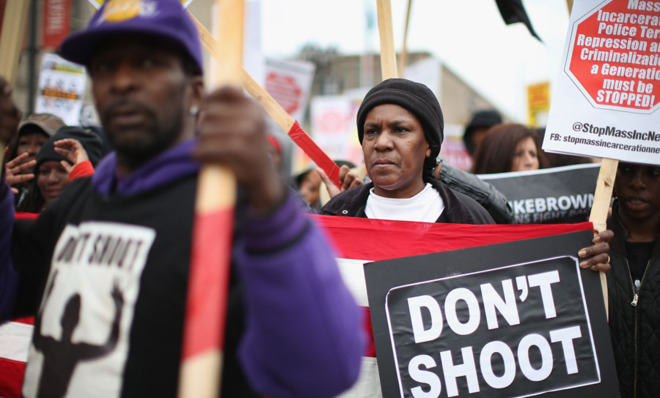Media bias and the abortionist


A free daily email with the biggest news stories of the day – and the best features from TheWeek.com
You are now subscribed
Your newsletter sign-up was successful
If you haven't heard anything about the trial of Dr. Kermit Gosnell's in Pennsylvania, that's going to change. But I fear the story you'll hear will be a story about why Gosnell's malpractice and mistreatment of women seeking abortions was not a big story until you heard about it. In other words, politics will extract the story from the realm of the real and put it into the realm of the meta.
To be upfront about it, according to a grand jury:
"This case is about a doctor who killed babies and endangered women. What we mean is that he regularly and illegally delivered live, viable babies in the third trimester of pregnancy — and then murdered these newborns by severing their spinal cords with scissors. The medical practice by which he carried out this business was a filthy fraud in which he overdosed his patients with dangerous drugs, spread venereal disease among them with infected instruments, perforated their wombs and bowels — and, on at least two occasions, caused their deaths."
The Week
Escape your echo chamber. Get the facts behind the news, plus analysis from multiple perspectives.

Sign up for The Week's Free Newsletters
From our morning news briefing to a weekly Good News Newsletter, get the best of The Week delivered directly to your inbox.
From our morning news briefing to a weekly Good News Newsletter, get the best of The Week delivered directly to your inbox.
Conor Friedersdorf believes that the media ignored the story because he thinks it challenges a liberal piety, or the now sacred institution of abortion on demand, something that the left-liberal media, he implies, subconsciously protects.
Maybe. But I think the economics of journalism are a more likely culprit. Even sensational stories drop through the widening cracks. There was also no public trial that could be televised, and — to be perfectly crass — only one of his adult patients died. It's a horrible story, but it doesn't have every element that would immediately lend itself to wall-to-wall cable news coverage. I agree with Kirsten Powers that the race and class of the patients probably influences news assignment managers more than it should.
Did the media ignore the story because the establishment does not view third trimester fetuses born alive as babies? And is that a result of the rhetorical limits that influence both policy and perception, limits imposed by the pro-choice lobby? Also a maybe.
But the "meta" story about this story is not necessarily an anti-abortion morality tale.
A free daily email with the biggest news stories of the day – and the best features from TheWeek.com
If it were easier and more socially accepted to get safer and earlier abortions in Pennsylvania, the demand for his services wouldn't be as high. Cutting funds for Planned Parenthood and other providers with reputations for medical excellence means that more people will seek the modern day equivalent of back-alley abortions.
Also, if health care inequalities weren't as pronounced, doctors like Gosnell would be kicked out of the market much earlier, or discovered much earlier.
As you read and metabolize the story and the debate, consider, yes, that media could have covered it a little better, think more broadly, too, about the many different ways in which the failure to catch Gosnell's horrible practices early enough represents significant systemic failures that have little to do with abortion.
Marc Ambinder is TheWeek.com's editor-at-large. He is the author, with D.B. Grady, of The Command and Deep State: Inside the Government Secrecy Industry. Marc is also a contributing editor for The Atlantic and GQ. Formerly, he served as White House correspondent for National Journal, chief political consultant for CBS News, and politics editor at The Atlantic. Marc is a 2001 graduate of Harvard. He is married to Michael Park, a corporate strategy consultant, and lives in Los Angeles.
-
 Why is the Trump administration talking about ‘Western civilization’?
Why is the Trump administration talking about ‘Western civilization’?Talking Points Rubio says Europe, US bonded by religion and ancestry
-
 Quentin Deranque: a student’s death energizes the French far right
Quentin Deranque: a student’s death energizes the French far rightIN THE SPOTLIGHT Reactions to the violent killing of an ultraconservative activist offer a glimpse at the culture wars roiling France ahead of next year’s elections
-
 Secured vs. unsecured loans: how do they differ and which is better?
Secured vs. unsecured loans: how do they differ and which is better?the explainer They are distinguished by the level of risk and the inclusion of collateral
-
 Rural America is more diverse than you think
Rural America is more diverse than you thinkThe Explainer It's not as poor and white as the media makes it out to be
-
 Can a media correction ever really match the mistake?
Can a media correction ever really match the mistake?The Explainer There has to be a better way
-
 Did the media get Ferguson wrong?
Did the media get Ferguson wrong?feature What we thought we knew about Ferguson is very likely not what actually happened
-
 Stop making fun of CNN's all-plane-mystery, all-the-time coverage
Stop making fun of CNN's all-plane-mystery, all-the-time coveragefeature The network's critics are sourpusses
